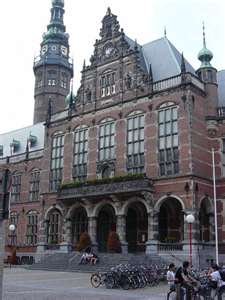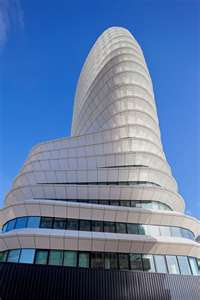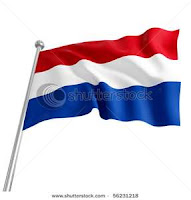Education in the Netherlands is characterized by division, education is orientated towards the needs and background of the pupil. Education is divided over schools for different age groups, some of which are divided in streams for different educational levels. Schools are furthermore divided in public, special and general special schools, although there are also a few private schools. The Dutch grading scale runs form 1 to 10. The programme for International student assessment coordinated by the OECD, ranks the education in the Netherlands as the 9th best in the world as of 2008, being significantly higher than the OECD average.
Education:
Education:
Primary school is eight years. Secondary education consists of a VBO (preparatory secondary high school), (Senior General), HAVO and VWO (pre-university education). VMBO diploma you can then continue to MBO.Depending on interest and ability of students in VMBO from one of the four learning tracks or routes: 1) theoretical route approved grant long MBO or Pozo; (2) professionally oriented route permission extended learning in secondary education, secondary education (MBO) or too short training programmes; (3 mixed nature trail with a combination of common themes and professionally oriented subjects; (4) organized a vocational route, in the labour market and to a certain group of SOUTO is the last stage of education. Pozo prepares for higher professional education (HBO), but instead you can use the VWO students or select senior secondary vocational education of higher vocational education. VWO prepared for higher education, but many students still at HBO.
There are 3 types of certificates, VWO: Athenaeum, gymnasium and a single certificate VWO. In the past two years, SOUTO VWO in the last two years of HAVO and over the past three years, you must complete the undergraduate curriculum requirements for one of the four theme in the cluster. SOTA students can choose between technology, health and personal hygiene and Social Affairs, economy and agriculture. HAVO and VWO, pupils may choose between science and technology, science and health, the economy and society and culture and society.
There are 3 types of certificates, VWO: Athenaeum, gymnasium and a single certificate VWO. In the past two years, SOUTO VWO in the last two years of HAVO and over the past three years, you must complete the undergraduate curriculum requirements for one of the four theme in the cluster. SOTA students can choose between technology, health and personal hygiene and Social Affairs, economy and agriculture. HAVO and VWO, pupils may choose between science and technology, science and health, the economy and society and culture and society.
Elementary school
 Aged four to twelve hits children elementary school (Basisschool; literally "elementary school"). This school has eight class called Groep 1 (Group 1) to Groep 8. school is compulsory group 2 (under five years of age), but almost all children start school at the age of four years (under 1). Group 1 and 2 previously in a separate institution akin to kindergarten (Kleuterschool; literally "Infant school") until it was merged with primary schools in 1989 year. Group of 3 children learn reading, writing and mathematics. You teach most of the schools of the English language in groups 7 and 8, although some start in Group 4.
Aged four to twelve hits children elementary school (Basisschool; literally "elementary school"). This school has eight class called Groep 1 (Group 1) to Groep 8. school is compulsory group 2 (under five years of age), but almost all children start school at the age of four years (under 1). Group 1 and 2 previously in a separate institution akin to kindergarten (Kleuterschool; literally "Infant school") until it was merged with primary schools in 1989 year. Group of 3 children learn reading, writing and mathematics. You teach most of the schools of the English language in groups 7 and 8, although some start in Group 4.  The vast majority of school management in Group 8 testing as Cito Eindtoets Basisonderwijs (literally, "CITO exam elementary education", often abbreviated Citotoets (Cito test) developed by the Centraal Instituut voor Toetsontwikkeling [4] (Central Institute for test development)), the most suitable for this kind of mean to recommend for students. In recent years, the Government won this test, but the recommendation of the Group 8 teacher together with the opinion of the students and their parents to remain a decisive factor in choosing the appropriate form. CITO test is compulsory; Instead, some schools manage Nederlandse Intelligentietest voor Onderwijsniveau ("Dutch intelligence test for education", usually abbreviated as NIO-Toets) or Schooleindonderzoek ("the school final examination).
The vast majority of school management in Group 8 testing as Cito Eindtoets Basisonderwijs (literally, "CITO exam elementary education", often abbreviated Citotoets (Cito test) developed by the Centraal Instituut voor Toetsontwikkeling [4] (Central Institute for test development)), the most suitable for this kind of mean to recommend for students. In recent years, the Government won this test, but the recommendation of the Group 8 teacher together with the opinion of the students and their parents to remain a decisive factor in choosing the appropriate form. CITO test is compulsory; Instead, some schools manage Nederlandse Intelligentietest voor Onderwijsniveau ("Dutch intelligence test for education", usually abbreviated as NIO-Toets) or Schooleindonderzoek ("the school final examination).A large number of primary schools are based on specific educational philosophies such as Montessori method, Pestalozzi plan, Dalton plan or Jena plan Freinet.[1] most of which are public schools, but some special schools, this educational philosophy based on a single.
Higher education:
 In higher education of the Netherlands is a binary system consisting of Wetenschappelijk onderwijs (where scientific research and has traditionally offered by the universities) and hoger Beroepsonderwijs (HBO-professional higher education traditionally offered Hogescholen). We offer programs, education and research in a broad range of disciplines: language and culture, behavior and society, economics, law, medicine and health sciences, natural sciences, engineering and agriculture. In addition, there is an Open University (OU-the Open University) fully recognized University offers degree programs through distance learning. Internationaal onderwijs (IO) (international education), held in General should be in English, especially students. Since September 2002, the system of higher education in the Netherlands, the three-cycle degree system consisted of organized degree of Bachelor, master and doctor. At the same time was at ECTS (European credit transfer system) as a means to quantify all the study programmes of higher education.
In higher education of the Netherlands is a binary system consisting of Wetenschappelijk onderwijs (where scientific research and has traditionally offered by the universities) and hoger Beroepsonderwijs (HBO-professional higher education traditionally offered Hogescholen). We offer programs, education and research in a broad range of disciplines: language and culture, behavior and society, economics, law, medicine and health sciences, natural sciences, engineering and agriculture. In addition, there is an Open University (OU-the Open University) fully recognized University offers degree programs through distance learning. Internationaal onderwijs (IO) (international education), held in General should be in English, especially students. Since September 2002, the system of higher education in the Netherlands, the three-cycle degree system consisted of organized degree of Bachelor, master and doctor. At the same time was at ECTS (European credit transfer system) as a means to quantify all the study programmes of higher education.The Top most Universities in Netherland are
- University of Amsterdam
- Leiden University
- Utrecht University
- Delft University of Technology
- Erasmus University Rotterdam
- Maastricht University
- Eindhoven University of Technology
- University of Groningen
- Wageningen University
- Vrije Universiteit
- University of Twente
- Radboud Universiteit Nijmegen
useful links
http://www.wordiq.com/definition/List_of_universities_in_the_Netherlands
http://www.wordiq.com/definition/Education_in_the_Netherlands#Secondary_education
http://www.wordiq.com/definition/Education_in_the_Netherlands#History_of_the_Educational_System

